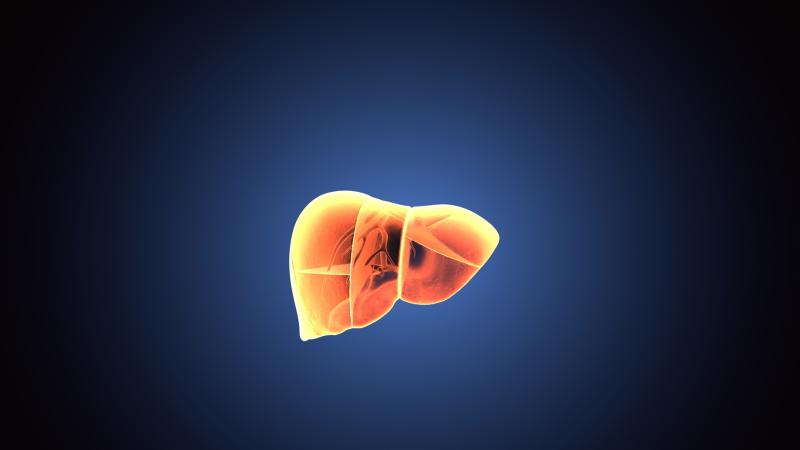
Liver stiffness (LS) may predict the recurrence of hepatocellular carcinoma (HCC) after radiofrequency ablation (RFA), a recent study has found. Spleen stiffness (SS), on the other hand, may precede hepatic decompensation.
Researchers conducted a prospective analysis on 173 HCC patients (mean age, 69.1±11.6 years; 61.8 percent male) who were treated with RFA. On the same day as the treatment, LS and SS were measured using acoustic radio force impulse (ARFI) elastography. Outcomes included overall (OS) and recurrence-free (RFS) survival, and hepatic decompensation.
Over a median follow-up of 27.7 months, 38 deaths were reported, yielding a mortality rate of 22.0 percent. The cumulative 1-, 2- and 5-year OS estimates were 93.8 percent, 80.3 percent and 71.4 percent, respectively. Stratification according to LS showed significantly better rates in those with ARFI ≤1.5 m/s (p=0.004).
This was confirmed through multivariate analysis, which revealed that LS >1.5 m/s was significantly correlated with OS (hazard ratio [HR], 4.105, 95 percent confidence interval [CI], 1.160–14.524; p=0.028), as was the use of antiviral medication (HR, 0.396; p=0.015). No such effect was reported for SS.
Over the same follow-up duration, 80 incidences of tumour recurrence were reported, corresponding to a recurrence rate of 46.2 percent. The cumulative RFS estimates at 1, 2 and 5 years were 73.2 percent, 54.1 percent and 23.6 percent, respectively. Those with ARFI >1.5 m/s for LS had significantly worse recurrence rates occurring within a shorter time frame.
Multivariate analysis again showed that LS >1.5 m/s could significantly and independently predict HCC recurrence after RFA, while no such effect was reported for SS.
In contrast, both LS >2.0 m/s (odds ratio [OR], 2.969, 95 percent CI, 1.509–5.841; p=0.002) and SS >2.7 m/s (OR, 4.870, 95 percent CI, 2.033–11.663; p<0.001) were significantly predictive of a high risk of hepatic decompensation.